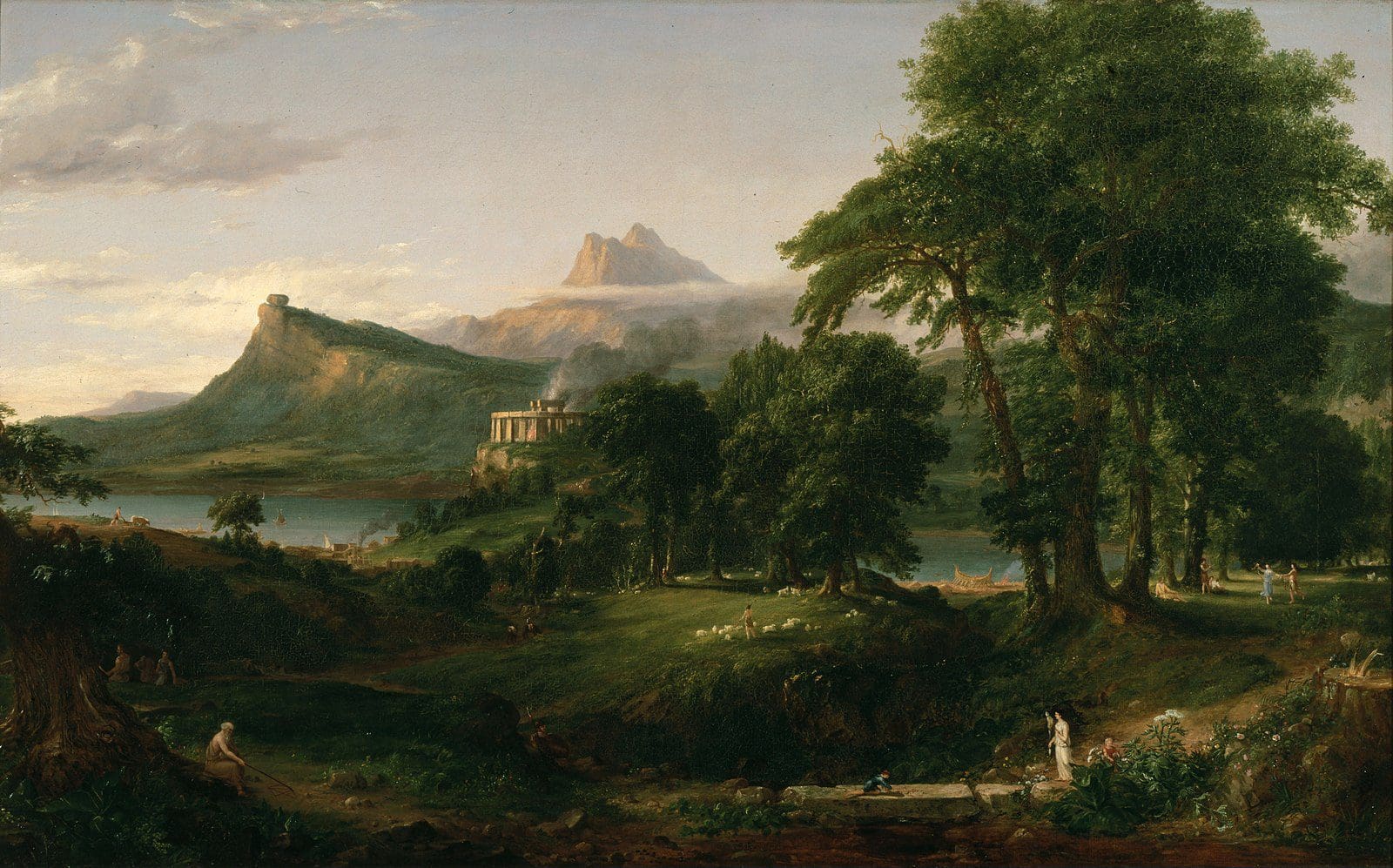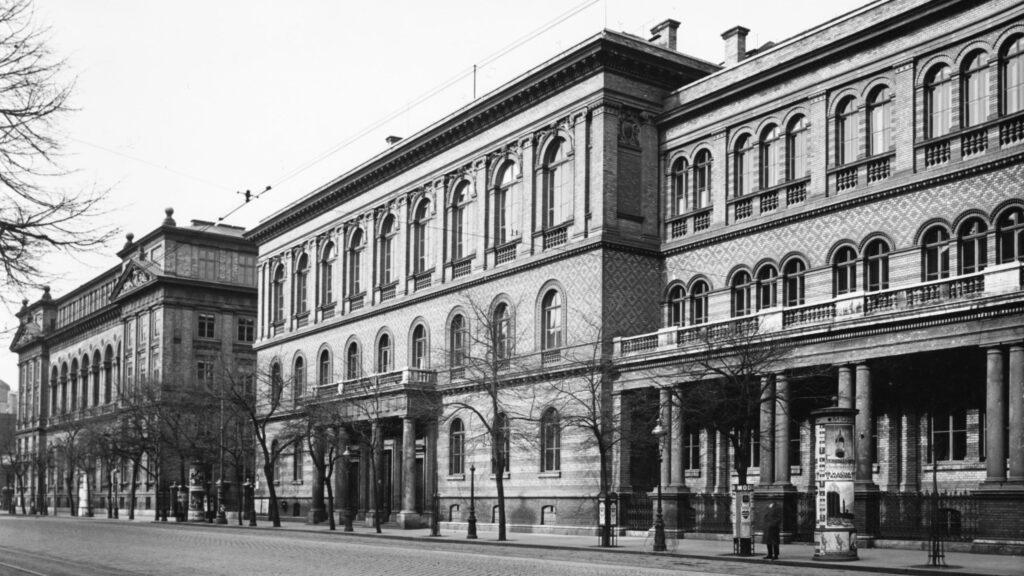‘Climate change is everyone’s fault—in other words, no one’s. We can all feel good about deploring it.‘ – Jonathan Franzen
The exceptional richness of nature in the Carpathian Basin is a recurring theme in old travel accounts, and something that never failed to amaze visitors to Hungary. These writers tell us, for instance, of a country extremely rich in water, and that the abundance and diversity of fish in Hungarian rivers and lakes astounded them. In addition to the variety of aquatic fauna, the quality of the soil and other aspects of nature made the Carpathian Basin one of the most attractive spots on the continent, even though the foreigner’s eye discerned a stark contrast between nature’s vitality and the degree of decay of the built environment after the destruction of many villages and cities during the period of Turkish rule (1541–1686).1 Praising what nature can offer resulted in the enduring trope of Fertilitas Pannoniae/ Hungariae (‘fertile Hungary’), one of the key motifs in Kölcsey’s ‘Hymn’ (the national anthem of Hungary), which can be traced back to rhetorical texts of Antiquity, and has been intertwined with the trope of PropugnaculumChristianitatis, (defender of Christianity) which lives on to this day.2 In gloomy texts expressing worry about the country, the preservation of the values of nature took on an ethical dimension: the Carpathian Basin needed help in the fight against the Turks to preserve its ecological values, and Hungary, as the defender of Christianity, expected the same. It is worth noting that while the trope of ‘defender of Christianity’ is still employed in political rhetoric today as a point of reference,3 its evident link with the preservation of nature had already been significantly modified in the eighteenth century, and subsequently faded from view.
The Richness of Nature in Hungary
Changes seen in nature in the second half of the eighteenth century and throughout the nineteenth century were more extensive than the changes that had been previously experienced in the Carpathian Basin since the arrival of the Hungarian tribes in the ninth century.4 It was in this period that the natural environment in the country as we see it today was shaped, and as such, a number of our environmental issues can be traced back to roughly that period, when a considerable portion of our forests disappeared, and indigenous tree species were crowded out by false acacias (known in their native range as black locust) brought in from America. Hungary saw the largest-scale drainage and flood protection efforts in Europe, resulting in a major problem that is still affecting us even today: the water supply to our arable lands became scarce, and the Great Plains started to dry out. Regarding the flood-management of the River Tisza, Péter Balogh notes that ‘the system of water and land use implemented in the modern era is operated by society as a system against nature. This explains the crisis phenomena we are experiencing: water management problems (flood, drought), regional issues (agricultural crises, infrastructure-related problems), and, indirectly, unfavourable cultural and demographic phenomena as well.’5
Elimination of the ancient method of water management triggered a radical transformation of conditions in nature
The implementation of flood relief entailed the gradual elimination of a special Hungarian sustainable practice in water and land management of many centuries past, the alluvial (floodplain) agriculture based on controlled water outlets (‘fok’ in Hungarian), though these likewise did not leave social and cultural conditions unaffected. The ancient character of this method of land cultivation is evidenced by the fact that the word fok is Finno-Ugric in origin, meaning that it dates to the earliest origins of the Hungarians. The essence of ‘fok-management’ is that flooding, the outflowing of water from the riverbed, is not prevented, but is instead facilitated and allowed to cover the widest possible area alongside the river, thereby regulating and controlling the size and position of the flooded areas. As Bertalan Andrásfalvy explains: ‘The role of the fok was, first and foremost, to provide an outlet for the water cutting through the point bar of the river at the lowest point of the floodplain, and to distribute the water—thus preventing it from swelling and bursting in a concentrated location and causing great destruction— before it was all ultimately redirected into the main river channel.’ Thanks to this method, the water did not gush onto lowlands, but filled them up gradually, thereby ensuring water replenishment for the soil. Once the water had ebbed and withdrawn into the main river channel, the floodplains did not turn into swamps, but nor did they dry out entirely. Doing away with ‘this method of ideal cooperation with nature’ was motivated by the ambition to make rivers navigable and to increase the area of arable land, that is, the intention to serve economic interests and political interests of the Habsburg rulers. Elimination of the ancient method of water management triggered a radical transformation of conditions in nature, and ‘although regulating waterways undoubtedly enlarged the area of land available for agriculture, the basis of the peasant economy, parallel to this “enrichment”, society and culture in Sárköz inevitably changed and started to disintegrate’.6
It is worth reading these old texts as evocations of something that is no longer present: the real natural environment they refer to does not exist any longer. It can only be ‘seen’ in the descriptions that survived it. The old texts also provide a backdrop for today’s ecological crisis. The difference between conditions past and our current circumstances can be illustrated by the following two quotes. In Benjámin Szőnyi’s poem, penned in Latin in the 1760s or 70s, the trope of ‘fertile Hungary’ is elaborated: ‘Everything on the great globe of this earth / Is produced by Hungarian soil a hundred times, a thousand times richer’ (‘Hungarian Soil’). In contrast, a poem in Imre Oravecz’s 2015 book entitled Tree, Leaving highlights the simultaneous (mutual) impoverishment of environmental conditions and the lifestyle in the countryside. The village is no longer a village if residents give up farming; the transformed lifestyle results in ecological barrenness, which in turn leads to cultural desolation: ‘everything is the same here as elsewhere, / with weeds, undergrowth, and garbage all around, / the soil only used for walking upon’ (‘Action gratuite’).7
It is important to refer to the present-day consequences of the landscaping efforts accomplished in the early modern period and in the eighteenth and nineteenth centuries, because it matters whether the Hungarian tradition, which shows a good example of a more ecological and more sustainable economy and a more organic lifestyle, is incorporated into the reaction of conservative thought—sensitive to historicity in nature—to the ecological crisis, and it matters how early we recognize what was lost through those early landscaping efforts.
Seen from a distant vantage point, it makes little difference who Greta Thunberg is or how many demonstrations climate protection activists manage to organize, but the degree to which we understand the historical background of domestic environmental issues—and that only a part of today’s challenges can be attributed to climate change—does matter. The landscaping efforts of the last two centuries themselves, even without climate change, have posed a major challenge for Hungarian society, while—not entirely decoupled from this—the Hungarian countryside has been turning into a desert in a cultural sense as well. In other words, instead of fighting against climate change, we should be fighting against economic methods alien to our natural environment, which have caused both the ecological crisis and ideological uniformity. A conservative ecology is also different from progressive–leftist forms of environmental protection in the sense that instead of global patterns it is trying to find answers within the local communities.8 Efficient local answers, however, can only be based on an awareness of local tradition and local historicity. Historical geography and ethnography, our literature, and cultural history may in fact offer solutions and models rooted in our own traditions just as effectively as other disciplines or following foreign examples (an all-important factor in the progressive worldview).
The Progressive Answer: Climate Emergency, the New Spectacle
Blinded by its pro-avant-garde passion, the political left often claims that it was their analysts who first called our attention to the environmental crisis, and that the left was the first to include the destruction of the natural environment as a subject in political discourse. Apart from the fact that ecological philosophy maintains that a number of its fundamental intellectual components come from Martin Heidegger, a philosopher whom it would be difficult to call leftist, progressive worldviews did not help us to realize that there was a crisis at all. As András Lányi puts it, ‘it is in fact the consequences of the historical success of leftist principles (unlimited comparability based on the universal nature of the laws of rationality) against which nature and ourselves should be protected’.9 It does not matter that ecopolitics was initially shaped in a leftist milieu if the practices which trigger ecological challenges stem exactly from the universalist progressive approach of the left. The social equivalent of biodiversity is multiculturalism, but the uniform global civilization and globalist progression do not tolerate local diversity. One possible explanation is that while ‘climate protection’ is linked, as a rule, to the protection of the identity of various minorities, according to leftist interpretations the local (national) frameworks of nature conservation, and their historical aspects, represent nothing but obstacles to overcome.
The demands of the environmental protection crowds are, for the most part, decoupled from the rehabilitation of our understanding of nature or the restoration of our former lifestyle
The climate rallies which became a regular occurrence last year were intended, first and foremost, to reinforce the feeling of cohesion and political identity among participants who think about the fight against climate change mostly in line with the scenarios of progressive techno-social (and, to a great extent, leftist/revolutionary) utopias. Their adopted goal takes precedence over environmental protection itself, in the sense that the actionist attitude so typical of the demonstrations (see the great variety of performances, for instance ‘die-ins’) turns the protection of nature into a spectacle, a spectacle where the image becomes more important than the phenomenon it stands for, claiming its place.10 The demands of the environmental protection crowds are, for the most part, decoupled from the rehabilitation of our understanding of nature or the restoration of our former lifestyle. Actions articulating ‘climate protection’ as progressive political action—thus, opposing conservatism—are firmly grounded in the tradition of modernity which, by totalizing technological and social (political-ideological) progression, exploited nature and at the same time released humanity from the natural constraints which used to give meaning to life and made sustainability possible. In András Lánczi’s words, the ‘entire programme of modernity is in fact focused on defeating nature’, thus without the critique of the anthropology and view of the nature of modernity, it is hardly possible to conceive of any effective action aimed at protecting nature. And such critical reflection has, since the beginning of modernity, been provided by conservative political philosophy.
Nature cannot be rehabilitated if we, at the same time, accept post-human bio- politics which intend to do away with the boundaries of the body. Still, ‘those who advocate the protection of the environment (but not nature, or, especially, creation) are the ones who want to shatter humans’ biological unity, and violate the boundaries of nature also existing and functioning inside them (which is further amplified by the LMBTQIA lobby, gender ideology, and incessant scheming to let technology invade the human body).’11 Modernist thinking seeks to protect humanity’s environment, thus humanity itself, precisely from nature, by harnessing, constraining, and limiting, and, as many believe, finally defeating it through the elimination of the boundaries of the human body.
The difference between environmental protection and nature conservation can also be demonstrated by the example of eradication of habitats entailed by improving the energy efficiency of buildings. With the external thermal insulation of buildings, all holes, cracks, and gaps where bats could hide will disappear, and no mud will stick on the anti-adhesive claddings, making it impossible for swallows to build nests (if they can even find mud). What we can see in this case is that thermal insulation—an allegedly environmentally friendly solution which reduces the amount of energy consumed—has a negative consequence on our natural environment as it eliminates habitats of living beings (not to mention the costs and environmental impact of production and transport of materials). Environmental ‘protection’ like this is not ecological, as it causes additional problems with its ‘eco- friendly’ solutions.
The progressive answer is characterized by the fact that it is linked to modernity, and it is, first and foremost, cosmopolitan. The expression ‘environmental protection’ also creates this impression, as it implies that our primary (direct) environment is not nature but the concrete jungle of the city around us, with high levels of noise pollution and light pollution, and the gently stifling fug of exhaust gases. Recently, however, a shift has been experienced in the relevant language: the term ‘environmental protection’ has been replaced by ‘climate protection’ and a multitude of other terms with the prefix ‘climate’. There are no environmental activists or environmentally conscious people any longer, as they were replaced by climate activists and climate-conscious citizens, and new terms have also been coined, including ‘climate killer’, ‘climate emergency’, ‘climate criminal’, ‘climate anxiety’, and ‘climate grief’. Climate change has been apparently decoupled from the ecological crisis as a whole, and has become a subject, cause, and purpose of leftist eco- discourse in its own right. The cosmopolitan ‘green’ thinking typically concerns itself with issues of technology, energy efficiency, and waste management, with its agenda focused on solar panels, electric vehicles, and the power lines of public transport. This approach often does not value livestock farming and makes a scapegoat of ‘agriculture’.
Within the discourse on ‘climate protection’, no distinction is made between various methods of agriculture (its intensive form colonized by industry and the form which adapts to nature), and the role played by backyard farming in biological diversity is hardly articulated. It is rarely mentioned that before the industrial revolution biodiversity was not diminishing as a result of humanity’s land use, but it was actually increasing. Before the totalization of industrial interests, through landscaping, water management, and soil improvement, humanity created habitats for species that would not have found appropriate conditions for themselves in forests. The last 250 years, however, ‘destroyed all the results which had been accumulated over the preceding 2,500 years’,12 but the discontinuation of livestock farming is not the solution. In fact, ‘increasing the number of species we breed may be one of the possible ways out of the ecological crisis’.13 The variety offered by the cultural landscape enhances biodiversity and serves as the basis for the autonomy of local communities. By contrast, the answer offered by progressive ‘greens’ is veganism, discouraging meat consumption and livestock farming, and replacing these products with exotic fruit and vegetables imported at huge ecological cost from distant countries.
The Conservative Answer: Respect for Locality
Since conservatism is always local, conservative ecology is based on respect for locality. It follows that an exclusive universal conservative answer does not exist, and it is unnecessary for domestic right-wing discourse to be dominated by any Western— for instance Anglo-Saxon—conservatism which goes against its own tradition.14 This is what justified the reference to the ecological aspects of Hungarian historical particularities at the outset of our line of reasoning, particularities which are seldom mentioned, or articulated in conservative argumentation.
Connections between the ecological approach and the conservative mindset are also set out by Creation protection programmes elaborated by churches. The term, by itself, indicates the difference, in terms of value systems and anthropology. ‘Creation protection’ has a transcendent angle, ensuring an ethical and theological dimension for the protection of the natural environment and the constructed environment of humanity: man’s task is to protect and cultivate the world created by God. A perspective which is inconceivable and ungraspable for the secularized worldview is manifest in this notion, which represents— for those who accept Creation protection— closer ties with nature and at the same time a stronger motivation than mere environmental declarations and legal regulations. The inspiration for Creation protection comes from inside, from faith and the soul, not from politically determined legislation or international legal conventions.15 That is the reason why we claim that the ecological crisis is a cultural crisis, the result of the self-annihilating makeover of our image of mankind and nature that was accomplished, to a significant extent, by eliminating the transcendent perspective.
When we emphasize that Christianity has to be defended, we are also talking about defending Creation, the created world. The system of arguments for defending Christianity remains weak unless protecting God’s Creation is included within it, in the same way that protecting the environment is a political act since it represents a common cause of the community and requires joint action, Christianity is impossible to understand without nature conservation. Understanding this prompted the efforts of political communities on the right to renew Europe by returning to their own Christian traditions, though with mixed results in recent years, and it is also stimulating the fight against the ecological crisis. On the conservative horizon, these two are evidently linked.
Is our faith credible and true if we fail to attend to preserving the world around us? In what sense are we committing a crime when we exploit nature?
The question of protecting Creation can be formulated as follows: do we really honour God as Creator if we do not appreciate the world created by Him? Is our faith credible and true if we fail to attend to preserving the world around us? In what sense are we committing a crime when we exploit nature? Religious people assume responsibility for the place in which they live, since space is not homogeneous and neutral to them, in contrast to the secularized concept of space.16 To be born to a place and to belong there is not accidental, does not happen by chance, and nature is not an abstraction ‘outside of us’. One cannot live anywhere; one can only live in a certain place. And if one has a place, one also has an attendant responsibility. Global citizens do not have a home; as a result, what they wish to save in the framework of progressive discourse is ‘the planet’, and not the land, the city, the village, or special traditions outside of global patterns. It is, however, not the planet which needs to be saved, but the life on it, in all of its unique forms. The focal point of conservative environmental protection is the home, also understood in terms of nature, as in conservative discourse it has become an organic theme based on oikophilia, a key concept elaborated in Roger Scruton’s Green Philosophy.17
The original meaning of the word oikos— the prefix of which, ‘eco’, is also included in ‘ecology’ and other similar words—is ‘home, household, and family’. Its etymology throws light on the fact that the protection of the environment or nature means, effectively, the protection of the home (one’s country) and family. Consequently, no family protection programme can be conceived without including in it the protection of nature and God’s creatures, or maintaining a healthy environment. Decoupling them is indicative of leftist thinking deconstructing the unity of the world. What flows from this is that unhealthy additives used by the food industry, poisonous chemicals used on a daily basis, and the current methods of exploiting nature undermine the foundations of a truly preservative ecology because they represent the sectoral logic fragmenting our world. They obscure basic interrelations, and disclaim mutual responsibility. According to the logic of fragmentation, the use of pesticides is only an issue in agriculture, and water quality is a concern only for water management. Forest management authorities are responsible for woodlands, the quality of air in metropolitan areas is a function of urban development strategy, safeguarding biodiversity is a task for environmental activists, human health is in the hands of healthcare professionals, and so on and so forth. These sectors either meet at a certain point—or they do not.
But what sort of economic development is this, really, if we have to pay for it with our health, and nature has to pay for it with its very existence? Protecting the environment also means protecting our health: appreciating, protecting, and maintaining the life we received from God. Protecting the foetus and the conservation of nature stem from the same root: our respect for life. Therefore, we should not use the word ‘progress’ when talking about a way of life which eats away the reserves earmarked for future generations. And we cannot talk about ‘development’ in the case of changes which do not bring about the renewal and replenishment of tradition, but rather its destruction. We should not apply methods of production which entail the deterioration of nature, and thereby eliminate the conditions of production for the long term (see the documentary Poisoned Earth). From the angle of the conservative, bound to a locality and protecting creation, it is difficult to adopt a positive view of industrial revolutions (including the currently ongoing fourth iteration), because as it is expressed in Péter Kajner’s book ‘the goal of industrial systems of production is to become independent from local conditions’.18 The scientific world view behind them demotes mankind and nature to mere raw materials.19 The logic of industrialization is an assault against the conservative worldview, local autonomy, and the order of creation. The idea of permanent growth has to be replaced by the commandment to enrich life, because real sustainability begins where nature is not a separate entity. There is only life or annihilation.20 Tertium non datur.
Conclusion
In Jan Assman’s view, ‘The relationship with the past lays the foundations of the identity of the group remembering it’.21 In this regard, as we have seen, the community’s awareness of its own identity has evidently been intertwined with protecting the natural environment. It is justified to call this (historical) perspective ‘ecological’. This is a crucial point which makes a big difference when contrasted with progressive/leftist discourse decoupled from national and local traditions, emphatically focusing on the present and a dystopian future. At the same time, it allows the ecological approach and the conservation of nature (or creation) to become a defining component of the identity of not only the right wing but the entire community. It is impossible to provide global and exclusively cosmopolitan answers to the ecological crisis, and we cannot talk about an ecological mentality and sustainability either in the framework of technological society, consumer culture, and global networks, or according to the logic of mass production.
Phenomena of the globalized world, however, must not be disregarded, as they impact on our local possibilities. Universals have never led to solutions, only caused new problems. Nevertheless, the interrelations of the local and the global likewise pose a significant challenge for conservative analysis. The answer to the question of whether it is possible to be a conservative in the twenty-first century is not completely clear, similarly to the question of whether it is possible to live sustainably in the new millennium. These are difficult questions, but they clearly indicate that conservatism and ecology are inextricably intertwined.
This text is based on two pieces published by the author earlier: ‘Konzervativizmus, jobboldaliság és a “zöld” értékek viszonyáról’ (On theRelationship of Conservatism, the Political Right, and ‘Green’ Values), Mandiner.hu (25 June 2019); and ‘Összeomlás, klímavészhelyzet: az új spektákulum’ (Collapse, Climate Emergency: The New Spectacle), Mandiner.hu (28 October 2019).
NOTES
1 See: László Kósa, ed., Magyar művelődéstörténet (Hungarian Cultural History) (Budapest: Osiris, 2006), 164–168; and Iván Sándor Kovács, ed., Magyar utazási irodalom 15–18. század (Hungarian Travel Literature from the Fifteenth to the Eighteenth Century) (Budapest: Szépirodalmi Kiadó, 1990).
2 Mihály Imre, ‘Magyarország panasza’ – A Querela Hungariae toposz a XVI–XVII. század irodalmában (Hungary’s Complaint: The Querela Hungariae Trope in Literature in the Sixteenth and Seventeenth Centuries) (Debrecen: Csokonai, 1995).
3 See, for instance, Benedict Kiely, ‘Viktor Orbán, Defender of Christianity’, The Imaginative Conservative, (4 January 2020), https:// theimaginativeconservative.org/2020/01/viktor-orban- defender-christianity-benedict-kiely.html.
4 Kósa, Magyar művelődéstörténet, 318.
5 ‘Magyarországon található a legnagyobb ármentesített terület Európában’ (The Most Extensive Area Affected by Flood Prevention in Europe Can Be Found in Hungary), in Kósa, Magyar művelődéstörténet, 322; and Péter Balogh, Mocsárra épült sivatag, (Desert Built on a Swamp), http://emberestisza.blogspot.com/p/tezisek.html.
6 Bertalan Andrásfalvy, A Duna mente népének ártéri gazdálkodása (Floodplain Farming of the People of the Danube) (Budakeszi: Ekvilibrium, 2007), 7–22.
7 According to Péter Szirák, ‘The fact that village life (and its middle-class equivalent in more affluent regions) has an intrinsic ecological and economic value that cannot be substituted with anything else, and the loss (and collapse) of the village as an irreversible loss of value is illustrated for the first time in our part of the world by the Szajla poems of Imre Oravecz’. Qutoed in Tamás Korpa, Viktor Pataki, and Veronika Porczió, eds, Az elveszett falu. Kép, színtér vagy poétika? = A magyar falu poétikái (The Lost Village. An Image, a Stage, or Poetics? = Poetics of the Hungarian Village) (Budapest: FISZ, 2018), 177. For a wider context, and for reflections not only on the works of Oravecz but other texts and theoretical problems as well, see the entire volume.
8 ‘Our global problems are stemming from our unjustified trust in global solutions, and can only be solved locally, by local people.’ András Lányi, Az ember fáj a földnek. Utak az ökofilozófiához (Man Hurts the Earth. Roads to an Eco-philosophy) (Budapest: L’Harmattan, 2010), 135.
9 Lányi, Az ember fáj a földnek, 138.
10 Paul Virilio, Háború és televízió (War and Television), translated by Anikó Ádám (Budapest: Mágus Design Stúdió, 2003), 20.
11 Márton Békés, ‘Az utolsó felkelés – 5 év múlva’ (The Last Uprising: 5 Years Later), conference lecture, manuscript, 2019, (Italics in the original.)
12 Péter Kajner, ed., Gazda(g)ságunk újrafelfedezése. Fenntartható vidéki gazdaságfejlesztés elméletben és gyakorlatban (Rediscovering Our Economy. Theory and Practice of Sustainable Regional Economic Development) (Budapest: L’Harmattan, 2007), 27. Concerning sustainable agriculture and regional development, see the entire volume, and also the agro-ecological research efforts of the Ecological Agricultural Research Institute.
13 Kajner, ed., Gazda(g)ságunk újrafelfedezése, 17.
14 Balázs Orbán and Attila Palkó, ‘A magyar konzervatív hagyomány védelmében’ (In Defence of Hungarian Conservative Tradition), Mandiner.hu (3 June 2019), https://precedens.mandiner.hu/cikk/20190603_orban_balazs_palko_attila_a_magyar_konzervativ_hagyomany_vedelmeben
15 Churches celebrate the ’Week of Creation’ every year at the end of September or the beginning of October, when they increasingly call believers’ attention to the importance of protecting Creation and its daily practice. For this, an ecumenical supporting material is produced each year, available at www.teremtesunnepe.hu. The movement of eco-congregations was initiated by Protestants. Participating congregations declare that they wish to operate in a sustainable way. Regarding the movement, see: www.okogyulekezet.hu. On protecting Creation in the Catholic sense, see: www.teremtesvedelem.hu.
16 On sacred space and profane space see Mircea Eliade, A szent és a profán (The Sacred and the Profane), translated by Gábor Berényi (Budapest: Európa, 2009).
17 See Roger Scruton, Zöld filozófia. Hogyan gondolkozzunk felelősen a bolygónkról? (Green Philosophy: How to Think Seriously about the Planet?), translated by Mihály Szilágyi-Gál and Ferenc Zsélyi (Budapest: Akadémiai, 2018); Dénes Mihály Uri, ‘Az ideiglenesen elfoglalt hely etikája’ (The Ethics of Temporarily Occupied Space), Kommentár, 3–4 (2018), 75–77.
18 Kajner, ed., Gazda(g)ságunk újrafelfedezése, 23. (Italics in the original).
19 See also Dénes Mihály Uri ‘Elvesz(t)ett szabadság. Konzervatív szellemiség és természetvédelem’ (Lost Freedom: The Conservative Mentality and Nature Conservation), Kommentár, 2 (2019), 72–78.
20 Péter Balogh, ‘Vízzel feltöltött táj avagy a fenntarthatóság képe(ssége)’ (Land Filled with Water, or the Ability to Ensure Sustainability), http:// emberestisza.blogspot.com/2016/03/vizzel-feltoltott-taj.html.
21 Jan Assmann, A kulturális emlékezet. Írás, emlékezés és politikai identitás a korai magaskultúrákban (Cultural Memory and Early Civilization: Writing, Remembrance, and Political Imagination), translated by Zoltán Hidas (Budapest: Atlantisz, 1999), 54.








